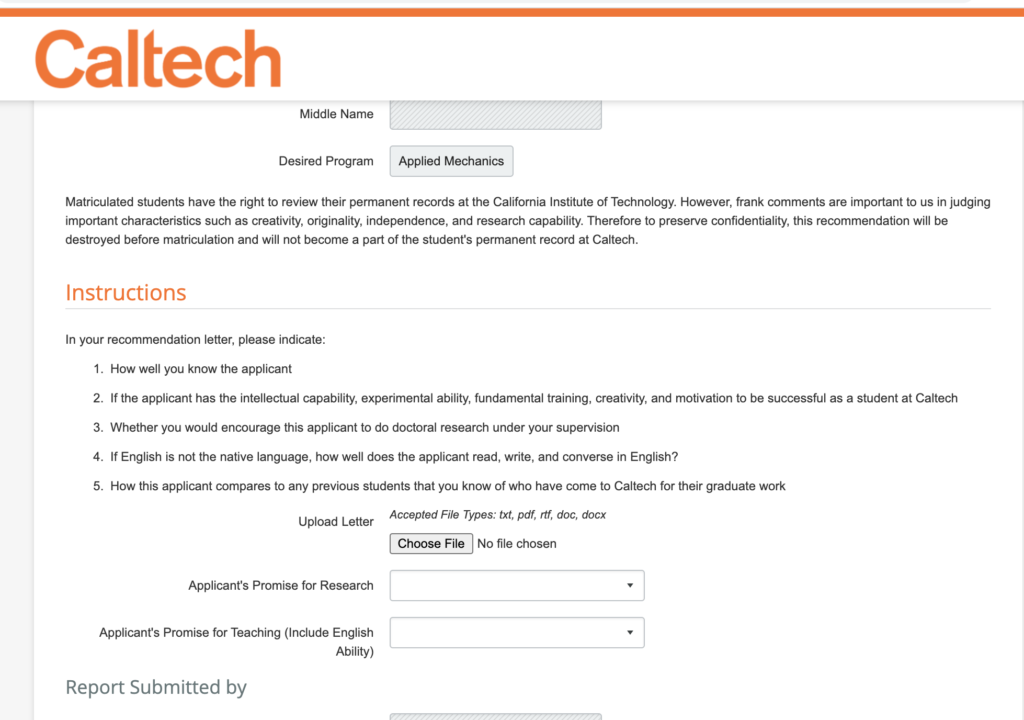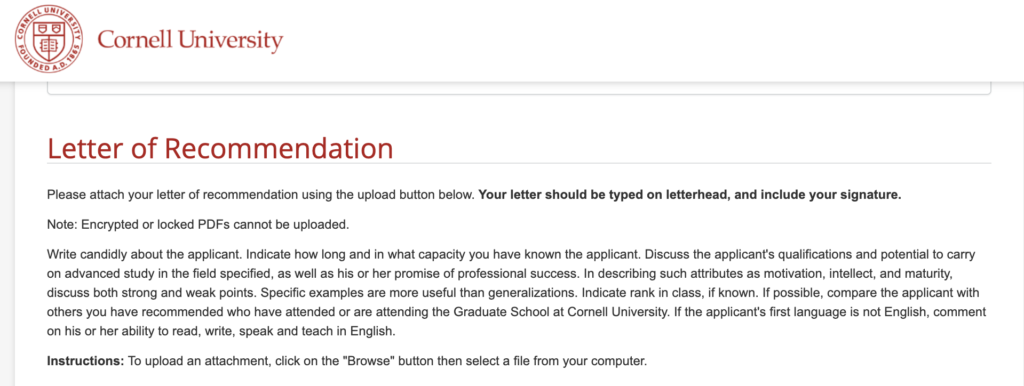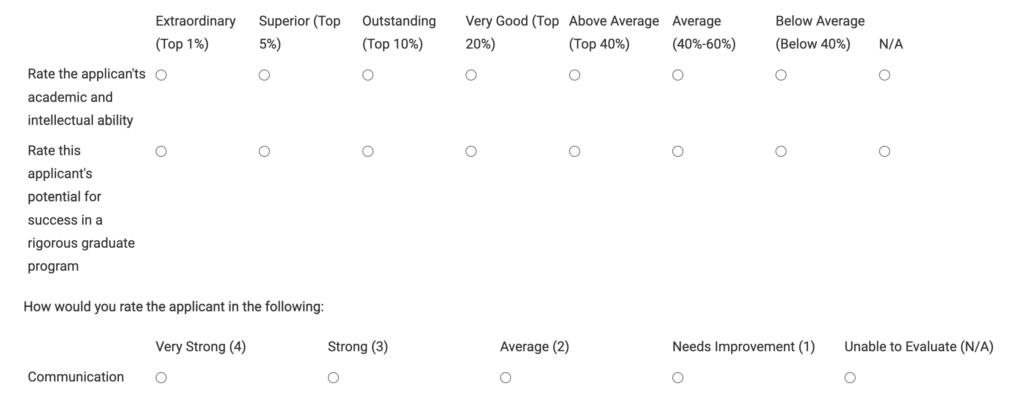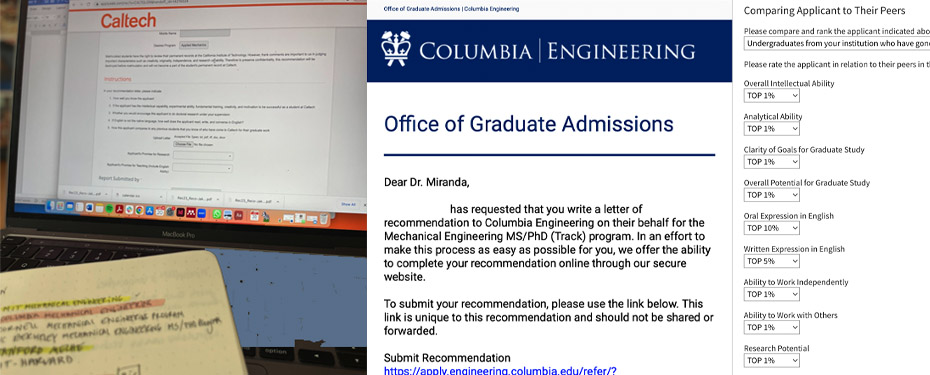Every year I receive requests to write recommendation letters. I’ve come to realize that we never talk about how to make a recommendation effective for your aim to pursue, graduate school, medical programs, and or work in the industry. It is essential that we write “strong” recommendation letters. Therefore, here are some tips:
- Strong letters come from frequent interaction: If you want to ask me for a letter, I need to know you. If I don’t know you, I cannot write a strong letter and you NEED a strong letter! Ask yourself: have I taken a course or have done a project with Dr. Miranda? How long was that course or that relationship for? Did I do good in that course or that project? Are there things from that instance that we can talk about to the program I am targeting? If I decline is not because I don’t like you, it’s because I might not be the best recommender for your target!
- What are institutions asking from us recommenders? Institutions looking for recommendations ask recommenders: the amount of time that we’ve known you, skills for independent work, intellectual performance, collegiality, and teamwork skills within others.
- What skills are institutions looking for? Look into the programs, what skills are specific to what the program is looking for? For Medical school, you should look into the AAMC’s core competencies for entering medical students, for graduate programs, you should look into what kind of competencies or abilities is the specific graduate group looking for. Industry, it’s a whole diverse area, so here we can talk about it (but usually in HR you can find the kind of people they recruit and the skills they are looking for in their job posts). Design Teams is a great course to showcase your learned soft skills and research skills in engineering design, so take a look at our Syllabus to highlight some of those! If you need examples for a CV, you can find mine in this blog. If you are going for a research graduate program, get your ORCID, and other digital research identities organized. Your LinkedIn should also be up to date.
- What should I send Dr.Miranda then to prepare the recommendations? Once you have the list of your programs, and your personal statements (for graduate programs you should have one personal statement tailored per program), send me the following list:
- Prioritize them for me (1 to 5, with being 1 the most important).
- Tell me to whom (for example Graduate Admissions, Stanford University)
- Name of the program (example: Biological Engineering graduate program at MIT)
- What do you want me to highlight in your letter that resonates with their program (example: How I lead my team, a diverse team, into creating an MVP that resonated with the individuals involved, I conducted clinical immersion with my team to understand the human component of biotech, I was resilient, even if our project did not work the first time, etc.…)
- Send me your statement letter for the program.
- Time Frame: Please do all of this within a reasonable time frame! – I usually have a group of students to help! If we are getting close to the deadline, send me a “friendly reminder”.
Here are some snapshots of what Universities ask for:
 Example: Caltech, how well you know the applicant, etc. This is a screenshot for the Ph.D. recommendation
Example: Caltech, how well you know the applicant, etc. This is a screenshot for the Ph.D. recommendation

Example: Cornell asks to talk about your relationship, English level, and abilities to pursue graduate school. Again, this is a recommendation for a Ph.D. program in Engineering.

Example: Other programs ask us to rate you in comparison to your cohort. This is why a strong letter is so important! The letter goes “beyond”.
